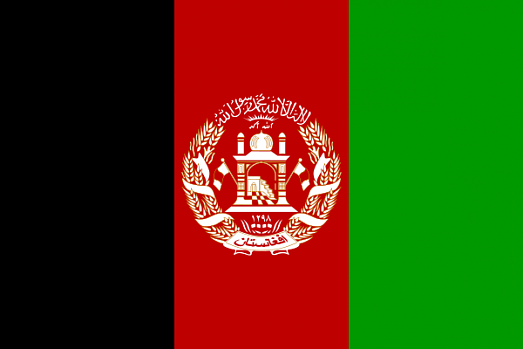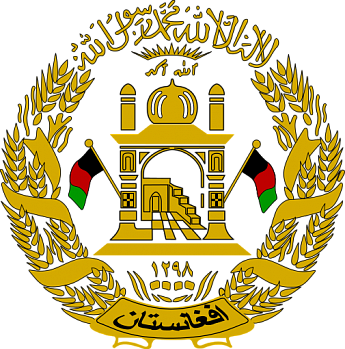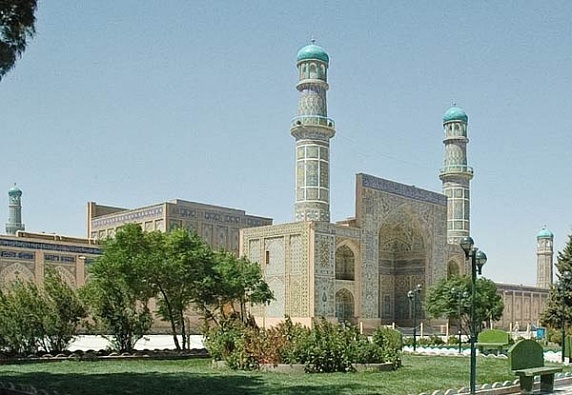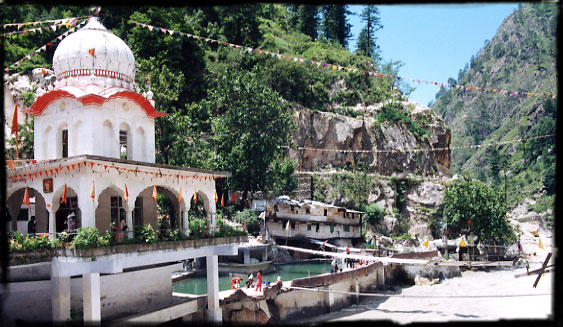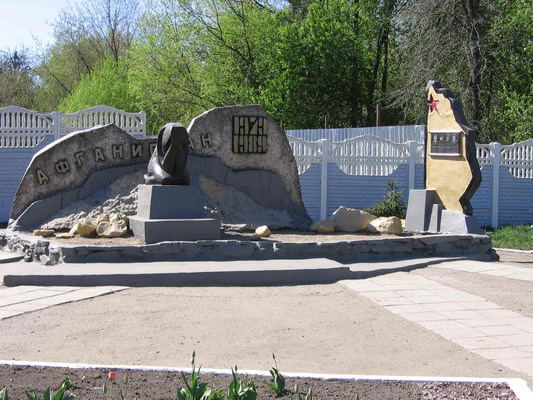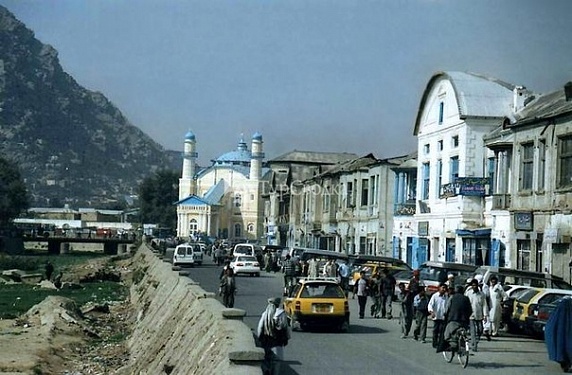 Афганистан
Афганистан
Transcript of Russian Minister of Foreign Affairs Sergey Lavrov Interview to Russian Media Following Attendance at the Inauguration Ceremony of Afghan President Hamid Karzai in Kabul, November 19, 2009
Question: How can you assess the speech of Hamid Karzai at the inaugural ceremony, including with regard to the need to achieve national reconciliation in the country?
Lavrov: In regard to the need to strengthen national reconciliation, Hamid Karzai publicly called on the entire Afghan political class, including his competitors in the presidential election, to unite for the sake of strengthening the country. He also said he would convene a Loya Jirga to promote all matters of national reconciliation.
Karzai also reiterated his position in respect of the dissatisfied Afghans, as he put it (he did not explicitly name the Taliban), by saying that all those who are not directly linked to international terrorism and who are willing to observe the Afghan constitution can find a worthy place in the political and other life in Afghanistan.
Secondly, Karzai paid considerable attention to the need to somewhat quicker create a situation allowing the Afghans to take their destiny into their own hands. This is directly linked to the consolidation of national consensus. He also noted that he was going within the next three to five years to make sure that the Afghan army and security forces could provide security in all parts of the country. Obviously, this is directly linked with the prospects of the completion of the activity of the international forces. Of course, it's necessary to proceed with caution, without setting any artificial deadlines. I think it is important to note that this goal has been set by the President of Afghanistan.
For our part, we will do our best to help the international forces as long as they have a mandate from the Afghan people and the UN Security Council. I hope that the efforts of many countries, including Russia, to train personnel for the Afghan army, security forces and police will help achieve this goal.
Speaking of security, a statement of no small importance concerned the need to end within two years the activities of foreign private security companies, whose actions have often caused human casualties. Absolutely innocent people died from some ill-considered acts of force.
Thirdly, the economy: here Karzai set the goal that the focus of the whole economic process should be the priorities of Afghanistan; that projects for the development of the country be designed and implemented by the Afghans themselves. He urged the international community in continuing assistance, without which Afghanistan cannot manage at present, to consider this task and do so that the assistance is directed towards what the Afghans themselves regard as a priority.
Incidentally, in the issue clusters regarding the economy and the internal life of Afghanistan, and the strengthening of its statehood, considerable attention was paid to the struggle against corruption, of which much has been written in the press. There were also attempts of political speculation in this regard. The problem, of course, is there, as it is in many other countries. Karzai's announcement of the introduction of a bill that would require officials to disclose their sources of income, and the declared implacable stand against those who are involved in drug trafficking, are steps that we welcome.
International assistance is an essential component of bringing normalcy to the country and of overcoming the negative trends, including the fight against drug trafficking. Clearly, international assistance will be needed. Karzai suggested a program and called for convening an international conference in Kabul, which will address the issues of how to channel the funds allocated by the international community to implement the priority lines of activity for Afghanistan itself.
It seems to me, and the impression was shared by my colleagues and I spoke with Clinton, Miliband, Kouchner, and Westerwelle, that the speech in general outlined the right things. We are ready to support the directions set forth by the President of Afghanistan.
The international conference has been discussed for many weeks now. There is the British proposal to convene it in London. President Karzai offered to host this event in Kabul. Frankly speaking, my attitude to this issue is pragmatic and flexible. The main thing is to formulate the goal of this conference, to prepare an agreement that will actually solve the Afghan problems. And in the matter of when and where to hold it, you need to listen to the people and leadership of Afghanistan. We'll certainly support what will be comfortable for the Afghan leaders. While there should be no delay in holding the conference, it is important to have enough time to prepare a meaningful agreement. Afghanistan is at a critical juncture. National consensus and national unity is the imperative that all feel acutely. If we agree on specific issues that will help to effectively strengthen the Afghan security forces and army, to raise the Afghan economy, and to rebuild infrastructure, then the conference will be a useful exercise.
Hamid Karzai during our bilateral talks praised the efforts of Russia's leadership to support processes aimed at a full-fledged statehood of Afghanistan. He appreciated the support that we provide in political terms. In the economic sphere, we are realizing quite a few projects in the country. The restoration of the heat and electric supply station that was built with Soviet aid is nearing completion. Funds are allocated to the development of the education system in Afghanistan, including the reconstruction of the Kabul Polytechnic University. Russian experts recently visited Kabul and looked at what is needed for restoring the House of Science and Culture, which was built by the Soviet Union and destroyed during the fighting. There are plans to set up a child health clinic at one of the facilities owned by us. In addition, we are open to multilateral cooperation, especially on the modernization and rehabilitation of facilities that were constructed with the help of the Soviet Union. Of strategic importance is the restoration of the Salang Tunnel and of the navigational facilities in Jalalabad. Now all of this is not quite operative. Combining the efforts of our country, which designed and built it all, of the Afghan government, which wants to restore these facilities, and of Western donors would be a good form of cooperation.
By and large it was not just a ceremony that took place in Kabul today. The inaugural events were accompanied by an important conversation, based on the informative and forward-looking speech of the President of Afghanistan.
Question: Many argue that the recent election in Afghanistan was non-alternative. Was it really, in your opinion?
Lavrov: I do not think that this is a correct assessment. I would be careful not to make such categorical statements. Everyone understands that the situation in Afghanistan is specific. There is no control over all the provinces, not only by the central government, but also by the International Security Assistance Force. Therefore to demand the kind of cleanliness inherent in the developed countries and even then not all of them would be unrealistic.
The previous presidential elections in Afghanistan had been held in difficult conditions. But now the situation was even more difficult. Nevertheless, there were several contenders in the presidential race, two of whom garnered the largest number of votes. Complaints came in to the central election commission and to the international monitoring commission. A commission was established to consider them. When Abdullah Abdullah withdrew his candidacy, the decision ultimately taken by the supervisory structures was pragmatic and helped avoid new painful and lengthy procedures with an incomprehensible purpose, as there was only one candidate left. Secondly, as demonstrated by the inauguration ceremony and the composition of its participants, it helped to stabilize the situation.
Question: The situation in Afghanistan deteriorates. Is there a feeling that the efforts of the Afghan leadership will lead nowhere?
Lavrov: This is a multifaceted problem. What is now happening in the dialogue between Afghanistan and Pakistan is a very important part of it. Pakistani President Asif Zardari was present at the inauguration ceremony; he had a conversation with President Karzai. This is a crucial element in terms of combining efforts to eliminate the hotbed of terrorism, which is in "no man's land" on both sides of the Afghan-Pakistani border.
We actively support the interaction between Kabul and Islamabad. In Yekaterinburg on the sidelines of the SCO summit Russian President Dmitry Medvedev held a trilateral meeting with President Karzai and President Zardari. Then, in Trieste on the sidelines of the G8 ministerial meeting I met with the foreign ministers of the two states. In Dushanbe in late July a quadripartite meeting of the Presidents of Russia, Tajikistan, Afghanistan and Pakistan took place. A trustful dialogue like this, with no strings attached, and aimed at a better understanding of the situation and concerns of the Afghans and Pakistanis, an understanding of how Russia and the neighboring countries will be able to use their influence to help solve the common tasks, above all, that of eliminating the hotbeds of terrorism, merits support and encouragement.
I would not say that the situation is hopeless. It is very grave and really getting worse. The Taliban are expanding their presence. Reports from your European colleagues criticize the troops of Western countries in Afghanistan for a propensity to some compromise. I would not blame anyone. It's a bad situation. But the prevailing atmosphere of the inaugural events, and the presence of a large number of distinguished foreign delegations from those countries that can really influence the state of affairs, have shown that there is some desire to use the moment associated with the renewal of power in Afghanistan, with the re-election of Hamid Karzai and with the formation of a new government to better coordinate their efforts. I will also mention the participation in the ceremony of the First Vice President of Iran, a country that can help, as well as of Turkey.
By the way, the long-standing Russian proposal that NATO, which constitutes the backbone of international forces in Afghanistan, establish relations with the CSTO, especially in combating drug trafficking, as part of Operation Channel, is now beginning to be appreciated. This I felt during the talk with the American participants of the ceremony and with US Special Envoy for Afghanistan Richard Holbrooke.
SCO has also held a series of activities on Afghanistan. The Organization has a contact group on cooperation with Afghanistan; there is the action plan adopted in Moscow in March to combat terrorist and narcotic threats. The conference which adopted this plan was attended by NATO, by Afghanistan's neighbors and by regional powers. By coordinating all these efforts, including the coalition's plans, the SCO proposals, the CSTO activities, and the new strategy of the US Administration for Afghanistan, something truly effective could be produced.
Question: In Ukraine, presidential elections are due to be held. Which of the candidates is closest to Russia?
Lavrov: We at that time too were neither brought closer to anyone nor did we try to bring anyone closer to us. We had our preferences, though, just as we do now. This preference is one and the same: we want that there would be a treaty-capable leadership in Ukraine, leaders who do not see in Russia a non-existent threat and do not blame all their problems on us. Any of the participants in the presidential race, who will pursue a friendly, respectful and good-neighborly policy towards Russia, will meet with understanding on our part and the same kind of response.
I am not going to indulge in any guesswork on how the situation will develop there: in addition to the pure form of public opinion and attitudes of politicians there are also various subjective factors and technologies. I do not know how it all will work. We want to see Ukraine as our good neighbor, friend, and ally – I won't fear the word – a country with which we could, on an equal and mutually respectful footing, solve all problems. If relations are based on equality and mutual respect, if we think about the interests of our citizens and their aspirations, then I don't see any issue still unresolved on our agenda that would not be amenable to negotiation and mutually acceptable settlement.
Question: Why did Karzai pay little attention to the theme of the fight against drug trafficking in his speech?
Lavrov: I do not think so. The intention was stated to prosecute all drug pushers who are involved in drug trafficking, and to actively cooperate with international structures. It is very important that Karzai has declared a fight against the cultivation of drug crops, and not just drug trafficking. This is an important thing. The same our American partners repeatedly changed their tack: now destroying the crops, now deciding to intercept and destroy the drugs. This is a complex task. It is important that Karzai's speech set it forth aptly and comprehensively, if not very extensively. Well, to talk at length about one of Afghanistan's many problems in an inaugural speech, apparently, does not work. I do not think this is an underestimation of the problem.
Question: Mottaki said the other day that Iran wanted to synchronously exchange its low-enriched uranium…
Lavrov: We want to get an official response to the formal proposal that was made to Iran by the IAEA. It hasn't come yet. As to statements, I prefer not to comment on them.
The political directors of the Six will meet in Brussels tomorrow. We will exchange assessments of the situation and see how to do so as to persuade our Iranian colleagues to cooperate with the IAEA, not only on the Tehran Research Reactor, but also on issues that have not yet been closed in the Iranian nuclear dossier. The proposals for negotiations have been made. The Iranians participated in the first contact. But we must start negotiations somewhat quicker.
Question: Will the secret proposals of the IAEA be discussed?
Lavrov: There are the proposals of the Six to Iran of eighteen months ago, in which the following is written. When Iran clarifies all the questions that the IAEA has with regard to it, and when confidence is restored in the exclusively peaceful nature of the Iranian nuclear program, the Islamic Republic of Iran will have all the same rights enjoyed by all non-nuclear NPT members. This means that Iran will have the right to enrich uranium. Who has thought it up to make this position of the Six, which no one hides, a secret plan of the IAEA, I do not know. There is no secret, no hidden intention of the Agency. This is the position of Europe, the United States, Russia and China.
Question: In the context of the developments in Moldova, reports have appeared recently that Russia has resigned itself to Vladimir Voronin's departure, and now we support the candidacy of Marian Lupu.
Lavrov: With respect to what happens in other countries, I cannot use the terms "resign oneself" or "not resign oneself." We have accepted the results of the elections held in Moldova and are working with the current regime in Moldova, which is legitimate. During the CIS summit the President of Russia met with the Acting President of Moldova. We also met with Moldovan presidential candidate Marian Lupu; Dmitry Medvedev met with him too. We maintain contacts with all political forces. We communicated with them when they were still in the opposition. I do not see anything unusual about this.
November 20, 2009
